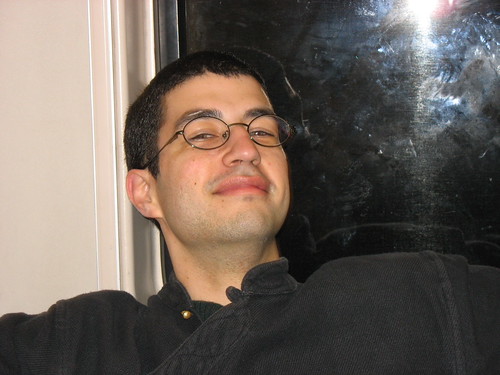William Shakespeare’s Macbeth
Begin: 10/14/07
End: 10/18/07
Quality: Eight out of Ten.
Reason: Reading Plan.
Genre: Fiction. Drama. Classics.
Original Language: English.
Date of Publication: 1623.
Fog Index: 6.7/92% are harder
Flesch Index: 75.4/90% are harder
Flesch-Kincaid Index: 5.0/93% are harder
Complex Words: 8%/86% have more.
Number: A Few.
Synopsis: Macbeth does very well in a Scottish war. Three witches prophecy that he will be thane of Cawdor and then king. When he is given the title of thane of Cawdor, Macbeth gets to thinking and with his wife’s help, kills the King, thus becoming king. And thus the tragedy begins.
Thoughts: What to say about Macbeth? What a fool, a bloody fool! And it’s so weird, he’s so concerned about regicide and killing such a good man in the beginning and then he makes this warped, twisted tyrant who kills friends and children. His wife, who started off more ambitious than him, just loses her damn mind. Very interesting story. Loyalty to both his king and to his friends is tossed out the window for ambition. Macbeth suffers, Scotland suffers, and everyone suffers, except maybe the witches who could give a shit.
“Whither shall I fly?/I have done no harm. But I remember now/I am in this earthly world, where to do harm/Is often laudable, to do good sometime/accounted dangerous folly. Why then, alas,/Do I put up that womanely defense,/to say I have done no harm?” (IV.ii. 72-75)
“Boundless intemperance/In nature is a tyranny; it hath been/th’ untimely emptying of the happy throne,/And fall of many kings. But fear not yet/to take upon you what is your: you may/convey your pleasures in a spacious plenty/and yet seem cold, the time you may so hoodwink./We have willing dames enough. There cannot be/that vulture in you,to devour so many/as Will to greatness dedicate themselves,/finding it so inclinded” (IV.iii. 67-75)
“Tomorrow, and tomorrow and tomorrow/creeps in this petty pace from day to day,/to the last syllable of recorded time;/and all our yesterdays have lighted fools/the way to dusty death. Out, out, brief candle!/Life’s but a walking shadow, a poor player/That struts and frets his hour upon the stage/ and then is heard no more. It is a tale/told by an idiot, full of sound and fury/signifying nothing.” (V.v. 17-28)

No comments:
Post a Comment